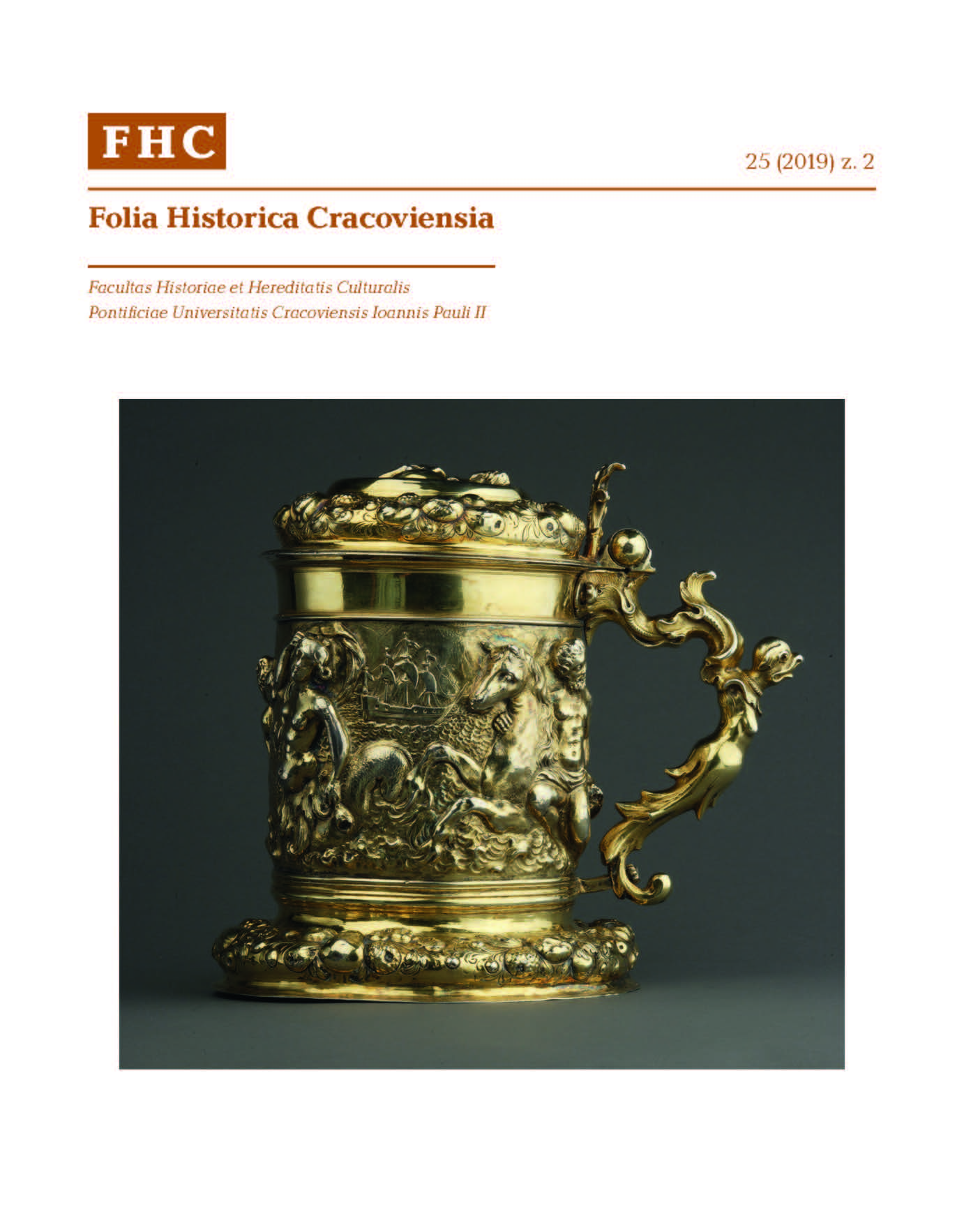Galicja w kręgu habsburskiej mitologii
DOI:
https://doi.org/10.15633/fhc.3602Słowa kluczowe:
Galicja, dynastia habsburska, mitologiaAbstrakt
Zniknięcie, rozpad czy też może rozpłynięcie się w niebycie monarchii habsburskiej w ciągu kilku ledwie ostatnich dni „wielkiej wojny” nie oznaczało, że czas i historia wyparowały bez śladu. Pozostało bowiem po niej bogate i różnorodne dziedzictwo. Tworzą go splecione z sobą – pamięć zbiorowa i pamięć kulturowa przeobrażające się z czasem w mitologię. W tej środkowo europejskiej, habsburskiej mitologii ważne miejsce zajmuje mit Galicji. Świadectwem jego istnienia i żywotności jest tyleż niespodziewane co intensywne pojawienie się jej przed kilkunastu w obszarze komercji. Było to możliwe skutkiem odwołania się do dziedzictwa, pamięci i mitu, nie zaś do elementarnej choćby wiedzy o rzeczywistości kryjącej się pod tym szyldem. Królestwo Galicji zostało zmiecione z zajmowanego niegdyś terytorium dwoma kataklizmami wojennym. Wszelako pamięć o nim, głęboko jak widać zakorzeniona, zdołała jednak przetrwać ten zły czas. Dziś żyje nadal, choć mocno przetworzona. Upływające lata wraz ze wszystkimi towarzyszącymi im dziejowymi wstrząsami dokonał jej swoistej dekonstrukcji, z której wyłonila się nowa, mityczna postać Galicji. Zaczęła ona żyć niejako własnym życiem,właściwie bez związku z oryginałem. A sferę, w której jej obecność jest dziś najbardziej widoczna stanowi właśnie szeroko pojęta komercja. Kultywowaniu aktualnej, komercyjnej głównie funkcjonalności Galicji rzadko towarzyszą refleksje nad sensownością czy też celowością pielęgnowania, bo tak w istocie się dzieje, jej mitologii. Czy korzyści materialne, bo zapewne takie istnieją, stanowią wystarczające uzasadnienie dla gloryfikowania w Polsce zaboru austriackiego?
Bibliografia
N. Davies, Zaginione królestwa, Kraków 2010.
Europa Środkowa: mit czy rzeczywistość? “Pressje”. Teka druga Klubu Jagiellońskiego, Kraków 2002.
Galicia. A Multicultured Land, ed. by Ch. Hann, P.R. Magocsi, Toronto, Buffalo, London 2005.
S. Grodziski, Habsburgowie: dzieje dynastii, 2nd ed., Kraków 2013
S. Grodziski, W Królestwie Galicji i Lodomerii, Kraków1997.
P.M. Judson, Imperium Habsburgów: wspólnota narodów, Warszawa 2017
C. Magris, Mit habsburski w literaturze austriackiej moderny, Kraków – Budapest – Syracuse 2019.
Mit Galicji, ed. by J. Purchla, W. Kos et al., Kraków 2014.
M. Pollack, Topografia pamięci, Wołowiec 2017.
J. Ronikier, Mit i historia: mitotwórcze funkcje podręczników szkolnych, Kraków 2002.
H. Wereszycki, Pod berłem Habsburgów: zagadnienia narodowościowe, 2nd ed., Kraków 2015.
E. Wiegandt, “Austria felix” czyli o micie Galicji w polskiej prozie współczesnej, Poznań 1997.
Pobrania
Opublikowane
Numer
Dział
Licencja
Autorzy publikujący w czasopiśmie udzielają jego wydawcy zgody o następującej treści:
- Autor zachowuje autorskie prawa majątkowe do utworu, a jednocześnie udziela wydawcy czasopisma zgody na jego pierwszą publikację w wersji drukowanej i wersji online na licencji Creative Commons Uznanie autorstwa 4.0 Międzynarodowe oraz zgody na wykonywanie opracowań, w tym przekładów.
- Autor ma możliwość udzielania zgody niewyłącznej na opublikowanie utworu w wersji, która ukazała się w czasopiśmie (np. zamieszczenia go w repozytorium instytucjonalnym lub opublikowania w książce), wraz z informacją o jego pierwszej publikacji w czasopiśmie.
- Autor może umieścić swój utwór online (np. w repozytorium instytucjonalnym lub na swojej stronie internetowej) jeszcze przed zgłoszeniem utworu do czasopisma.

